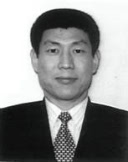„Mitteleuropa” – nadal aktualna niemiecka strategia gospodarcza
Kategoria: Trendy gospodarcze

Niu Tiehang, Senior Fellow China Center for Internationa Economic Exchange
Obserwator Finansowy: Czy Pana zdaniem jest w ogóle coś takiego jak „konsensus pekiński”? Czy to określenie jest w stanie opisać politykę ekonomiczną krajów tak odmiennych jak Chiny, Indie czy Brazylia?
Niu Tiehang: Niektórzy mówią o „konsensusie pekińskim”, jako swego rodzaju przeciwieństwie „konsensusu waszyngtońskiego”. Zwykle nie akceptujemy takich konceptów jak „Chinamerica”, czy „Chindia” – Chiny plus Indie. Wszystko to są sztuczne konstrukcje, które nie oddają sensu i znaczenia tego, co naprawdę się dzieje w polityce, gospodarce i finansach.
Te koncepty dotyczą globalizacji, czyli generalnej zmiany świata. Jednak globalizacja może przybierać różne postacie. Sam termin „globalizacja” nie pochodzi z Chin – powstał w USA i kraje rozwijające przyjęły go – ale Chiny biorą naturalnie aktywny udział w tym procesie. Największy przełom miał miejsce 5-6 lat temu, gdy Chiny wstąpiły do WTO. Od tej pory chiński handel międzynarodowy rośnie błyskawicznie – średnio o 25-27 proc. rocznie. To pokazuje jak bardzo globalizacja sprzyja integracji Chin ze światową gospodarką, choć jednocześnie powoduje presję polityczną. Obecnie Chiny są właśnie w trakcie wyprzedzania Japonii, stając się drugą gospodarką światową. Tym niemniej wskaźnik zamożności PKB per capita sytuuje kraj bardzo nisko. Chiński produkt krajowy w przeliczeniu na głowę to nieco ponad 3 tysiące USD rocznie. Niewiele – jesteśmy pod tym względem mniej więcej na 110. miejscu na świecie. Nadal mamy dużo do zrobienia.
Czy państwa określane jako „Chindia” czy BRIC,będą forsować jakieś swoje własne kierunki przemian gospodarczych na świecie?
BRIC to tylko grupa największych krajów rozwijających się – nic więcej. A Chiny preferują strategię „nie wychylania się”, wiedząc jak słaba jest w gruncie rzeczy ich pozycja w światowej gospodarce i w relacjach międzynarodowych. Jeśli mówimy o wpływie Chin na pozostałe państwa, to musi być on pozytywny, choćby dlatego, że Chińczycy są pokojowym narodem. Jeden z moich amerykańskich znajomych powiedział kiedyś – „wy, Chińczycy, musicie być bardzo pokojowymi ludźmi. Sądzę tak, porównując używanie sztućców. Na Zachodzie używamy noży i widelców, jakbyśmy byli na wojnie. Wy, w Chinach używacie drewnianych pałeczek, których nie można użyć w charakterze broni”. Był z nami także hinduski znajomy, który dodał – „Hindusi są jeszcze bardziej pokojowi, ponieważ nie używamy nawet drewnianych pałeczek, tylko własnych rąk!”
Chińczycy muszą dorosnąć, rozwijać się w swoim własnym rytmie. Jeśli chodzi o stopień rozwoju, to nadal pozostają w tyle wobec innych krajów, przede wszystkim w dziedzinie nauki i techniki. Obecnie starają się skrócić ten dystans, ale tego nie należy traktować w kategoriach zagrożenia dla kogokolwiek. Warto raczej patrzeć na to w ten sposób, że chińskie doświadczenia mogą być przydatne innym krajom rozwijającym się.
W zeszłym roku byłem w Indonezji na zaproszenie think-thanku Habibie Centre, z okazji 10 rocznicy jego powstania. Poproszono mnie, abym opowiedział o sukcesach chińskiej gospodarki. Powiedziałem, że 30 lat temu zaczynaliśmy od reform na terenach wiejskich, starając się rozwiązać podstawowe problemy, jak pożywienie i dach nad głową, a nie od wprowadzania reform politycznych, jak na przykład wolność słowa. Ale to właśnie reformy wiejskie stały się podstawą pozwalającą przeprowadzić reformy w miastach, te zaś z kolei umożliwiły reformę przemysłową i pozostałe. W rezultacie wytyczyliśmy własną drogę rozwoju, na początku skromną, ale rezultaty są imponujące. Gdy skończyłem, obecny na sali indonezyjski znajomy zakrzyknął: „Znaleźliśmy rozwiązanie!”. Indonezja jest krajem rozwijającym się, głównie rolniczym, przez co jej sytuacja przypomina chińską. Jeśli Indonezyjczycy podążą drogą chińską, najpilniejszą sprawą będzie uporanie się z trapiącymi ich realnymi problemami, bardziej niż dyskusje o kwestiach politycznych, takich jak wolność słowa czy demokracja.
Obecny na spotkaniu chiński ambasador zauważył, że na demokrację trzeba patrzeć jako na środek rozwiązywania podstawowych problemów i poprawiania jakości życia. Każdy ma swoją drogę rozwoju. Używanie pałeczek, czy używanie widelca służy rozwiązywaniu tego samego problemu – zaspokojenia głodu.
Jaka jest rola regulacji finansowych w chińskim modelu rozwoju?
Reformy w tym zakresie zaczęliśmy niedawno i szybko zorientowaliśmy się, że sprawa nie jest prosta. Powodem była płytkość chińskiego rynku finansowego. Jakieś 10 lat temu w ogóle czegoś takiego jak rynek finansowy w Chinach tak naprawdę nie było.
Dlatego proces reform w sektorze finansowym musi być przeprowadzany pod kontrolą, a rozwój i przemiany chińskiego rynku kapitałowego, giełd i banków państwowych muszą następować bardzo powoli. Rozpoczęliśmy deregulację sektora finansowego, ale bardzo ostrożnie, krok po kroku, tak aby maksymalnie ograniczyć ryzyko. Jeszcze 10 lat temu wszystkie banki należały do państwa, zbierały wiele depozytów, ale nie posiadały żadnego kapitału założycielskiego. Nie spełniały więc wymogów kapitałowych według standardów Bazylei II, tj. na poziomie 8 proc. Chiny wyciągnęły z tego wnioski i zaczęły zasilać banki kapitałem z rezerw walutowych zakumulowanych przez ostatnie trzy dekady, zaproponowały ich akcje zagranicznym inwestorom strategicznym i wprowadziły je na giełdy krajowe i zagraniczne. Wszystkie te operacje były bardzo istotne w procesie reformy banków państwowych.
Rozmawiali: Katarzyna Golik i Ryszard Holzer
China: our own path of reforms
We started 30 years ago with the reform of rural side, trying to solve the basic problems of food and accommodation, rather than implementing political reforms like freedom of speech and so on. On the base of this rural reform we developed the urban reform, the industrial reform and other reforms. It is how we developed the path – this path was at the beginning small, but after the 30 years the result is great – says Niu Tiehang, Senior Fellow, China Center for International Economic Exchange.
Obserwator Finansowy: Is there something like “Beijing consensus”? What is your opinion about it? Is this fraze useful as a some kind of a frame describing economic policy of countries as different as China, India, Brazil and other?
Niu Tiehang: Some people speak about “Beijing consensus”, as some contradiction toward the Washington consensus”. Normally we do not accept this concepts, such as “Chinamerica”, or “Chindia” – China plus India. All this are superficial political concepts, that do not bare the actual activities in political, economical and financial areas.
What all this concepts are about is globalization – a general change in the world. And globalization bears many different contexts. One has to remember, that the word “globalization” itself is not China-made, it was created in America and other developing countries adopted it. But, of course, China actively took part in this process. The major break-through started about 5-6 years ago, when China entered the WTO. Since then China’s trade increased tremendously – each year its growth rate was 25-27 %. This means that the globalization supports Chinese integration with the world economy, although it also face sort of political pressure form outside. If you look at Chinese economy as a whole, it is currently surpassing Japan to become the second largest economy in the world. But if you look at the per capita base, China is still very backward. Per capita GDP is a little bit more than $3000 per annum. This is not much. At the per capita based we are ranked at about 110th position in the world. So we have a big room to improve.
Do you think there is some kind of a common interest between “Chindia” or BRIC’s countries in shaping the world in a way different than the Western countries would do?
BRIC is just a group of the biggest developing economies, nothing more. And China prefers lowbrow attitude. In the reality China is really very weak in world economy and other international matters.
If you are talking about China’s influence on other countries, I think that the influence must be in positive side if only because Chinese in nature are peace-loving people. One of my American friends told me some time ago: “Your people must be very peaceful. I judge it from the cutlery. In the West we use knifes and forks, as if we were on the war. But in China you use wooden chopsticks, that can not be used as a weapon”. And there was an Indian friend with us, who mentioned: “Indian people are even more peace loving because we never use even wooden things, we use our hands!”. (laugh).
I think that the Chinese people need to grow, to develop, by its own natural course. China used to be lagging behind with the world development, especially in the field of science and technology. And actually China is catching up with the world level, which is not a threat at all. It’s development seems to be also an experience that could be shared with other developing countries. Last year I had visited Indonesia for the invitation of the Habibie Centre think-thank, to celebrate its 10th anniversary. They asked me to talk about the success of Chinese economy.
I said that we started 30 years ago with the reform of rural side, trying to solve the basic problems of food and accommodation, rather than implementing political reforms like freedom of speech and so on. That is the way we started. On the base of this rural reform we developed the urban reform, the industrial reform and other reforms. It is how we developed the path – this path was at the beginning small, but after the 30 years the result is great.
And immediately, one of the Indonesian friends from audience said: “We found the solution”. Indonesia is mostly an agricultural and developing country, which makes it very similar to China. If they follow the China’s path, they think that the most urgent need is to solve their problems rather than talking political issues like freedom of speech or democracy.
At that time Chinese ambassador supported my idea, saying that democracy is a mean to solve the basic problems, to improve everybody’s living standard. Using the chopsticks and using the fork is solving the same problem of eating. So, there tends to be the different paths to develop.
What is the role of financial regulations in this Chinese model of development?
We just recently came to the financial reforms, and we found out that it is not easy to start wit it, as China had a very weak financial market. About 10 years ago China had no financial market at all. So we have to keep this process under control, to start cautiously to develop China’s capital market, stock market and state banks. So the deregulation is undertaken, but with caution, step by step, in order to keep the risk at the lowest possible level. Only 10 years ago all the Chinese banks used to be state-owned and they took lots of deposits with no equity base. So they did not live up to the Basel II standard of capital adequacy ratio, which is about 8%. China learned this and started to inject equity from its foreign reserves accumulated during the last 3 decades, and then introduced foreign strategic partners and get them domestically and overseas listed. All these processes have achieved great effects in the state-owned bank reform.
